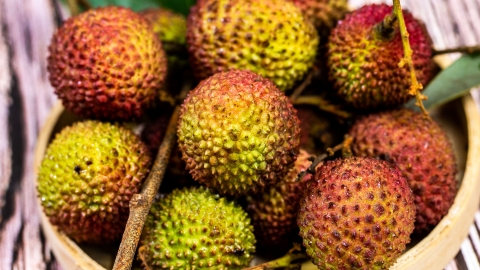Can you eat lychee if you have an allergy?
Generally speaking, whether one can eat lychee during an allergic reaction depends on the cause of the allergy and the individual's response to lychee. If the allergy is not caused by lychee and symptoms are mild, small amounts of lychee may be consumed. However, if the person is allergic to lychee or experiencing severe allergic symptoms, lychee should not be consumed. If in doubt, it is recommended to seek medical advice in advance. Detailed explanations are as follows:

If the allergy is caused by other factors such as pollen or dust mites, and it is confirmed that the person is not allergic to lychee, and the allergic symptoms are mild with only minor rashes and slight itching, then small amounts of lychee can be consumed. Lychee is rich in vitamins and glucose; moderate consumption can provide nutrients, enhance immunity, and aid in recovery. However, during consumption, care should be taken to avoid contact between lychee juice and the skin affected by the allergy.
If one is allergic to lychee itself, consumption can trigger or worsen allergic reactions, causing symptoms such as skin swelling, intensified itching, increased rashes, and even severe symptoms like difficulty breathing and dizziness. Additionally, during an acute allergic reaction phase, the immune system is highly sensitive. Even if someone was not previously allergic to lychee, intolerance might occur at this time, increasing the risk of an allergic reaction. In such cases, lychee consumption must be strictly avoided.
Consumption of lychee during an allergic reaction should be approached with caution. First, confirm whether there is an allergy to lychee. If unsure, a small test portion may be tried while closely observing the body's response. If any adverse reactions occur, consumption should be stopped immediately. During allergy episodes, the diet should primarily consist of bland, low-allergenic foods to help alleviate symptoms.








